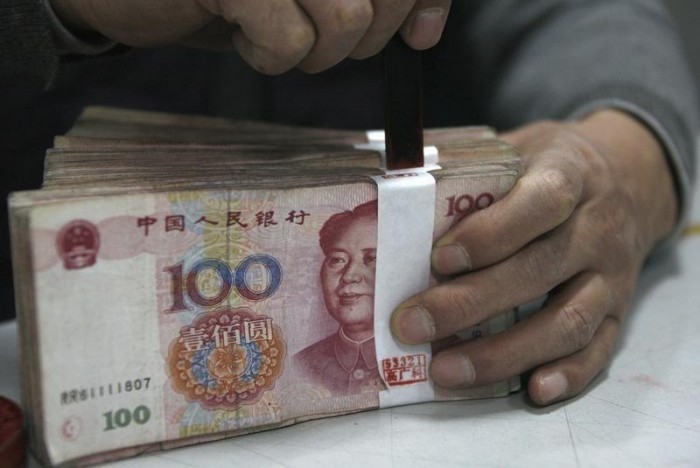
Bloomberg reports that China's property-led economic rebound gathered pace in April, according to the earliest batch of private indicators for the month. Gauges from four providers all increased in April from March, while sub-indexes for employment showed stronger demand for workers. Still, not all the clouds have parted: data tracking the outlook of businesses show companies remain reluctant to invest. New credit, industrial output, fixed-asset investment and retail sales all picked up and exceeded economists estimates in March, while first-quarter economic growth matched forecasts for the slowest expansion since 2009. Signs the recovery is enduring into the second quarter may entrench a change in forecasts for monetary policy, with analysts already dialing back expectations for additional easing.
- Reuters says that China has agreed with Brunei, Cambodia and Laos that the South China Sea territorial dispute should not affect relations between China and the Association of South East Asian National (ASEAN), China's Foreign Ministry said on Sunday.Four members of the 10-member ASEAN - the Philippines, Vietnam, Malaysia and Brunei - have rival claims to parts of the South China Sea with China, which says virtually the entire sea belongs to it. China is the biggest trade partner of many ASEAN nations.China's Foreign Minister Wang Yi spoke to reporters in the Lao capital, Vientiane, on Saturday and was quoted by his ministry as saying China had reached "an important consensus" with Brunei, Cambodia and Laos. The South China Sea problem was not a China-ASEAN dispute and it "should not affect China-ASEAN relations", the ministry said in a statement, referring to their agreement.
Washington Post writes that ever since Chinese computer maker Lenovo spent billions of dollars to acquire IBM's personal-computer and server businesses, some lawmakers have called on federal agencies to stop using the company's equipment out of concerns over Chinese spying.This past week, those lawmakers thought the Pentagon finally heeded their warnings. An email circulated within the Air Force appeared to indicate that Lenovo was being kicked out. "For immediate implementation: Per AF Cyber Command direction, Lenovo products are being removed from the Approved Products List and should not be purchased for DoD use. Lenovo products currently in use will be removed from the network," stated the message. Then the Pentagon's press office weighed in. Not so fast, it said.In fact, Lenovo has never been on the "Approved Products List".The squabble comes amid heightened tension between the United States and China over cybersecurity..
- 2016-04-22 China denies reports of massing troops at North Korea border
- 2016-04-21 US envoy says China, US united in opposition to NKorea tests
- 2016-04-20 Democrat attacks policy on China, Republican defends it
- 2016-04-19 China Extending Anti-Graft Measures to Officials' Families
- 2016-04-18 Chinese Housing Market Shakes Off a Slump
- 2016-04-17 China's Reforms Give Global Economy Some Breathing Room, Leaders Say
- 2016-04-15 Senior Chinese Military Officer Visited Dispute Island
- 2016-04-14 China to punish hundreds of officials over vaccine scandal
- 2016-04-13 China's Island Building Hurts Environment, U.S. Report Says
- 2016-04-12 China criticizes G-7 statement on South China Sea
- Reuters North Korea says submarine ballistic missile test 'great success'
- Wall Street Journal China's Tech Leaders Try Teaching Dinosaurs to Dance
- South China Morning Post Indonesian navy impounds Chinese trawler for illegal fishing
- Fortune Volkswagen Optimistic Of Upward China Sales Trend
- CNBC China debt load reaches record high as risk to economy mounts
- uk.reuters.com China's Xi warns of foreign infiltration through religion
- New York Times Scolari Feels Pressure in China
- New York Times China Police Stop Western Diplomats From Visiting Dissident
- Reuters Australia imposes dumping duties on Chinese steel
- Reuters China regulator reprimands 15 publishers for false reports: Xinhua
- TIME More Than 170 Countries Sign Paris Agreement in a Landmark for the Climate Fight
- money.cnn.com Yes, China has won big from U.S. trade
- The Diplomat China's Steel Glut Still a Problem
- Forbes China's Political Turmoil Worsening, Affecting The Economy
- www.newsweek.com 'Great Wall of Sand' Military Buildup Vexes China's Allies, Enemies
- Forbes China Vs Saudi Arabia: Where US Businesses Make The Most Money
